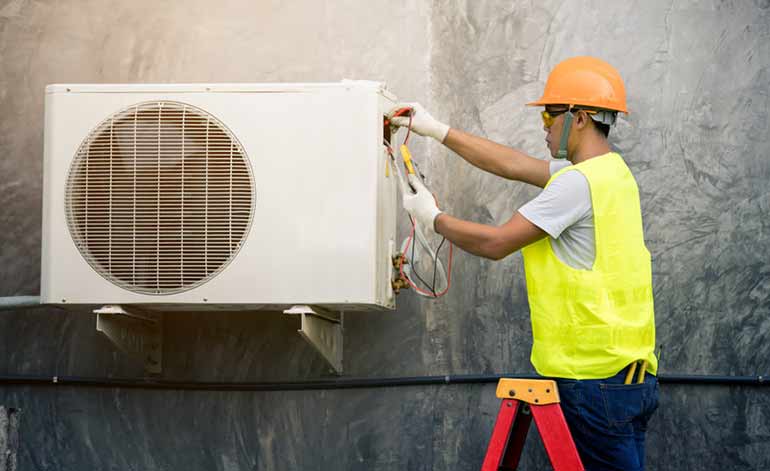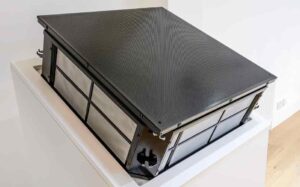Report sees key role for propane in sustainable cooling
16th August 2022
EUROPE: A switch to propane refrigerant for space cooling could avoid a 0.09°C increase in global temperature by the end of the century, a new report suggests.
In the study published in Proceedings of the National Academy of Sciences of the United States of America (PNAS), researchers from the International Institute for Applied Systems Analysis (IIASA), the United Nations Environment Programme and the University of Leeds, UK, used the IIASA’s GAINS model to compare the baseline halogenated refrigerant emission scenarios with scenarios of switching to R32 or propane. While the switch to R32 also lessened the global temperature increase (0.03°C by the end of the century), propane proved to be the superior solution in terms of sustainability.
Split ACs using propane as a low GWP alternative to R410A and R32 (or R22) are commercially available in the Chinese and Indian markets and are said to account for about 2% of annual sales of split ACs in India. Their use and acceptance elsewhere is often restricted by building codes and standards related to flammability issues.
However, in Europe, the European Commission has proposed to ban the use of HFCs with GWPs of 150 or more in new split system air conditioners and heat pumps of a rated capacity of up to and including 12kW from January 1, 2027, as part of the revision to the European F-gas regulations. If accepted, propane is currently the most viable potential option to achieve this.

Split ACs using propane are said to perform similarly to those using R32 and are more efficient than appliances using R410A and R22. Also, split ACs using propane are said to perform better in warm climates.
Energy demand
Currently the most used appliance for space cooling worldwide split ACs accounted for around 10% of total electricity demand worldwide in 2016. The report maintains that if the current trends continue, the energy demand from air conditioners would more than triple by 2050 and the stock of ACs would increase from about 0.9 billion in 2017 to over 3.7 billion in 2050.
According to the report, a switch to propane in split ACs could avoid 0.09°C (0.06°C to 0.12°C) increase in global temperature by the end of the century. This is significantly more than the 0.03°C (0.02°C to 0.05°C) avoided warming from a complete switch to R32 in split ACs.
In comparison to R410A–based units, propane split ACs are said to have 6 to 10% higher production costs due to the need for additional safety measures. However, the report argues that the operating costs of propane units are lower since they are more efficient and use 40 to 60% less refrigerant than R410A. As an A2L gas, R32 is also flammable but less so than propane, an A3 refrigerant.
The report concludes that the continued use of R410A refrigerant in split ACs, would see global annual HFC emissions from split ACs increase from 0.4GTCO2e in 2017 to 1.7GTCO2e in 2050 and 2.6GTCO2e in 2100. Transitioning to R32 would reduce these emissions on an annual basis by 38% in 2050 and 51% in 2100, whereas switching to propane would reduce them by nearly 100% in 2060. Transitioning from HFC-410A to HFC-32 can reduce the global cumulative HFC emissions from split ACs by 44% between 2017 and 2100, whereas adoption of propane could instead achieve a cumulative reduction by 88% over the same period.
Related stories:
Standard revision a “milestone” for propane AC – 3 May 2022
SWITZERLAND: A new standards revision will in future allow a larger charge of flammable A3 refrigerant, like propane (R290), in domestic air conditioners, heat pumps and dehumidifiers. Read more…
HC refrigerant adoption in European air conditioners “unrealistic” – 26 May 2021
BELGIUM: The European manufacturers’ group Eurovent has rejected as “completely unrealistic” claims by the European Commission that hydrocarbon refrigerants could replace HFCs in air conditioning systems by 2030. Read more…
EC backs adoption of propane in small split air conditioners – 2 October 2020
EUROPE: The European Commission is backing the use of propane (R290) in small split-system air conditioners, with the future possibility of a maximum GWP of 150 for new equipment. Read more…







